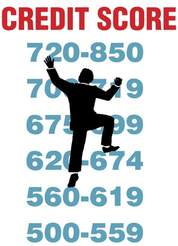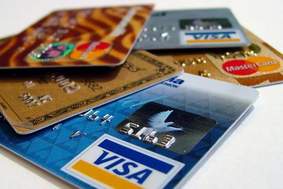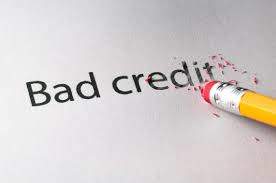Cred it Scores can be a little intimidating, especially since your credit score affects how much money you can borrow at what interest rate, and not many people understand how Credit Scores work. There are ways to increase your credit score and keep it high.
it Scores can be a little intimidating, especially since your credit score affects how much money you can borrow at what interest rate, and not many people understand how Credit Scores work. There are ways to increase your credit score and keep it high.
We wrote a post about understanding your credit score, even though it is a few years old it is still relevant. The article is a good read to learn more about how your credit activities affect your credit score.
Building good financial habits is the best way to get a high score and keep it. Here are 8 tips to help you build those healthy financial habits and keep your credit score high:
- Don’t apply for credit unless absolutely necessary
- Reduce the number of credit card applications you submit. Every time your apply for a credit card they do a credit check, these affect you credit score because multiple credit card applications implies you may be in a difficult Financial situation. The exception is having multiple credit checks in a short period of time for either a mortgage or car loan, this is considered shopping around for the best deal, and therefore is not as harmful to your score.
- And try to maintain a good “credit mix” – a mixture of credit cards and loans
- Be aware of overall credit utilization
- You are better off to have two credit cards at 50% of the limit than you are to have one maxed out and another at zero. It is not total dollar value of debt, but total debt as compared to available credit.
- Always pay at least the minimum payment by the due date, and if you can pay the bill in full
- Pay all collections you may have, and avoid letting any disputes get that far. In a dispute, you are better off to pay the account and then fight with the company for a refund, than to withhold funds and get sent to collections.
- If you tend to be forgetful set up payment reminders or automatic debits
- Don’t go over your limit on your credit cards.
- Ideally, you would like your credit card balance to be below 50% of your limit, but definitely not more than 70%
- Protect yourself from Identity theft
- Be cautious when giving out personal information over the phone, through mail, or on the internet.

- Limit the amount of id you carry with you. Keep items like your birth certificate and social insurance card at home in a safe unless you need them with you for a particular purpose.
- Shred all old financial documents instead of just recycling or throwing them out.
- If you think you have been the victim of identity theft:
- File a fraud report with your local police
- Call your bank and credit card providers right away
- Contact Canada’s credit reporting agencies (Equifax and TransUnion),
- Be cautious when giving out personal information over the phone, through mail, or on the internet.
- Reduce your debt. I know easier said than done, here are some tips:
- Have a plan with clear goals and deadlines, and make sure they are achievable
- Look at your budget, and if you don’t have a budget making one may be a good idea to help you see where you stand financially. You may be surprised at how much you actually spend eating out compared to what you spend on groceries.
- Try negotiating a lower rate with your credit card company.
- Pay mostly with cash, this will help you to be more conscious about your spending
- And lastly, if you really are having trouble managing your debt you may want to look into debt consolidation. Debt consolidation is a low interest loan which combines your entire debit into one, giving you only one payment to worry about.
- Pull your credit report at least once a year to review for accuracy.
- It is free if you order by mail. Don’t pay for a credit score from Equifax, as it is not the same score that lenders use anyway. This score is good to see if your credit is going in the right direction, but it is not an indicator of what mortgage you may qualify for.
- If trying to build your score, try using credit card every second month like this:
- Use card for something you normally buy, like gas or groceries
- Wait for the bill to come in the mail (don’t rush home and pay the card off, let the bill come showing this purchase balance)
- Pay the card in full by the due date. You won’t have any interest if you pay it in full.
- Don’t use the card again, wait a full month for the next bill to come in the mail showing the zero balance.

- Repeat.
- Equifax is all computer algorithms. It doesn’t know if you are paying your card off in full each month, or just carrying the same balance. By using the card every other month as described, you are showing that you have a balance, paid it off, etc. This really works to increase your score much faster than most other ways.
Increasing your credit score may not be easy and it may take time but it is worth it, especially if you ever plan to purchase a home or get a car loan.
If you have any questions about credit scores or mortgages please give us a call at (250)898-8821 or Toll Free at 1-866-898-8821.




